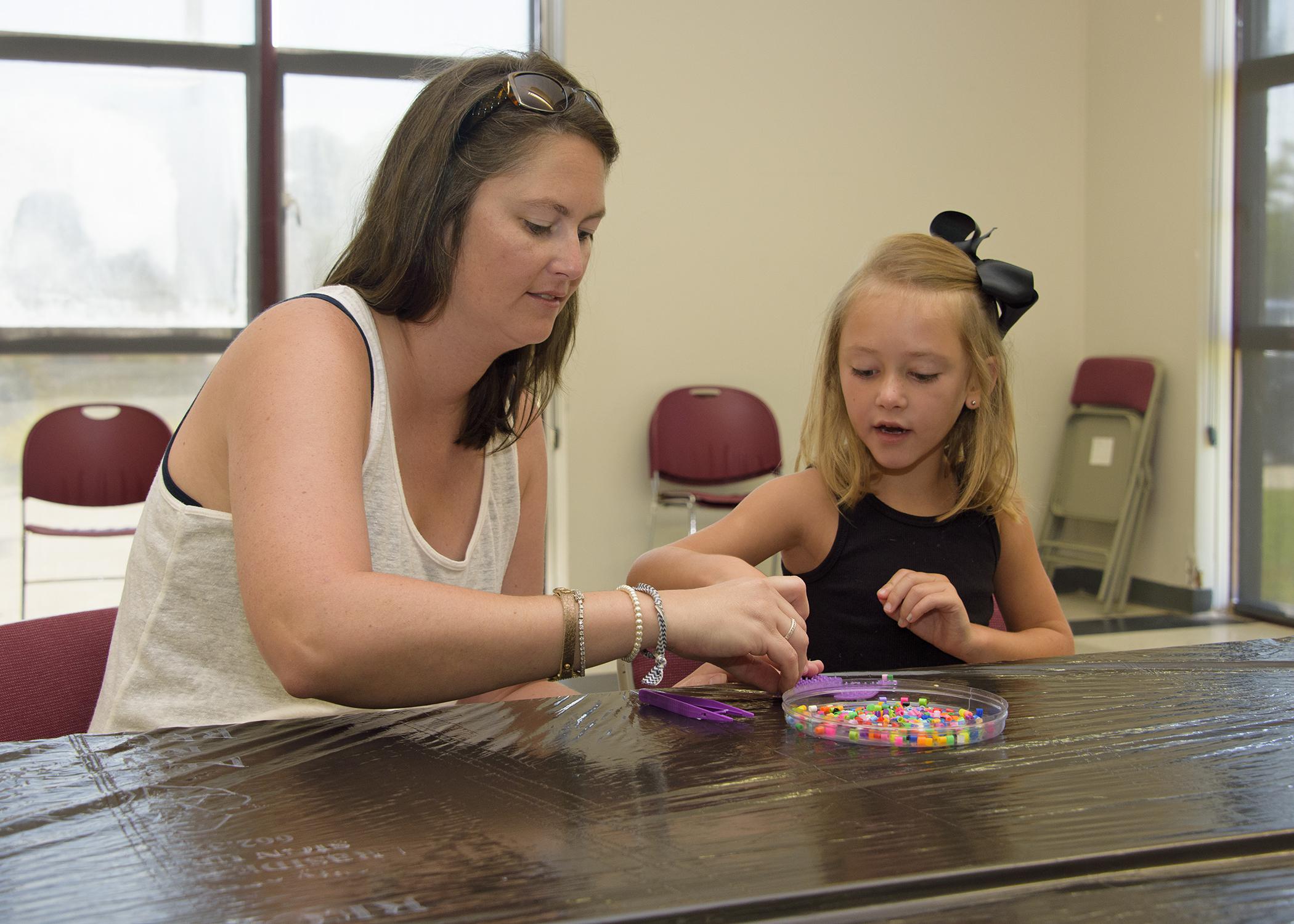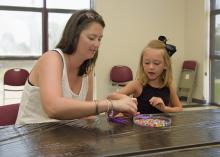Information Possibly Outdated
The information presented on this page was originally released on July 17, 2015. It may not be outdated, but please search our site for more current information. If you plan to quote or reference this information in a publication, please check with the Extension specialist or author before proceeding.
Learning outside class can be fun, effective
STARKVILLE, Miss. -- Parents who want to see that their children get the best education possible know that learning takes place both inside and outside the classroom.
Jana Carolyn Everett, a fourth-grade teacher of talented and gifted students in Starkville, said students make more lasting connections to education when learning happens not only at school, but also at home.
“When learning can be expanded beyond the walls of the classroom, the material learned comes alive,” Everett said.
She said parents play a big role in keeping education interesting and helping their children to learn beyond the time they spend in class.
“Parents can always help students by reading together at night,” Everett said. “This encourages a love for literature as well as fluency. Parents can also use flash cards and board games to help students learn things they may be struggling with in class.”
Often learning happens in nonstructured situations.
“Just getting out and talking about things they see around town is another great way to keep minds active,” she said. “Sometimes I help my daughter practice shapes using road signs.”
Having fun can be a good way to learn new material.
“The more engaging learning is, the more fun students have learning and the more they want to learn,” Everett said. “Hands-on learning and outside-the-classroom experiences are what help connect the material in a book to actual knowledge.”
Larry Alexander, 4-H youth development specialist with the Mississippi State University Extension Service, said 4-H programming gives students the opportunity to participate in nonformal educational opportunities that enhance their formal education.
“4-H is known for providing the carrot that makes young people want to learn through activities they engage in outside the classroom,” Alexander said. “4-H offers hands-on interaction that makes learning fun while allowing them to engage in a variety of learning environments.”
Alexander said educational experiences outside the classroom can provide opportunities that will broaden a young person’s educational horizon.
“4-H promotes the experiential model of learning,” he said. “A young person first has an experience simply by taking part in an activity; then, they are allowed to share the results, reactions and the observations publicly. Next, they process what they’ve learned by discussing, analyzing and reflecting on the experience. After that, they generalize to connect the experience to a real world example. Finally, they apply what was learned to a similar or different situation.
“In essence, 4-H aligns hands-on learning experiences with classroom experiences to provide enrichment for the young people who participate in both,” he said.
Laura Lemons, an assistant professor of agricultural information sciences and agricultural leadership, said her teaching philosophy is deeply rooted in experiential learning.
“I believe that the best way for a student to truly learn is through experience -- applying knowledge to a real-life situation, connecting it to prior learning and reinforcing that knowledge through reflection on those experiences,” Lemons said. “Even within the confines of the classroom, I work to provide activities and opportunities for students to ‘try on the learning,’ simulating experiences and applying learning.”
She said people believe in and practice the things they have experienced and seen work in action.
“While classroom instruction is valuable, oftentimes learners don’t really grasp the concepts until they can plug them in to real life,” she said.
Learning happens best when the subject is made relevant, and students consider topics boring when they fail to see the application to their own lives.
“The most important thing students can do during this time in their life is to go and do, to seize every opportunity that comes their way,” Lemons said. “There is simply no better educator than experience.”
She encouraged parents and young people to find outside-the-classroom educational opportunities by simply asking and looking.
“Ask your professors. Ask your peers. Get involved. Join student organizations. Volunteer. Attend activities across campus. Go study abroad. Engage in conversations with people. Put down your phone and give your texting and social media thumbs a rest. Look around. Read flyers and bulletin boards,” she said. “Grades are absolutely important, but equally important are all the other components of your learning.”




